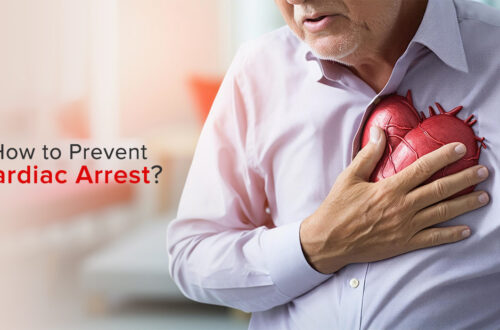Understanding Eating Disorders: Causes and Influences
What causes eating disorders? An eating disorder is a serious mental health condition characterized by abnormal eating habits and intense distress regarding body weight or shape.
The most prevalent eating disorders include Anorexia Nervosa, Bulimia Nervosa, and Binge Eating Disorder. While it is a common misconception that eating disorders primarily affect adolescent females, individuals of all ages and genders can develop these conditions.
Eating disorders present significant challenges in treatment and often have long-lasting symptoms and consequences. They frequently coexist with other mental health issues such as anxiety, depression, or substance abuse.
The complexity of eating disorders is influenced by various factors. Although the precise cause of eating disorders remains unknown, most psychiatrists agree that a combination of biological, psychological, and environmental factors contribute to their development.
Common Causes of Eating Disorders
Genetics
There is growing evidence suggesting a genetic link in the development of eating disorders. Biologically influential factors such as hormonal imbalances or brain chemical abnormalities may also play a role.
Individuals with a family history of eating disorders, such as a parent or sibling, are more likely to develop these conditions.
Other Mental Health Disorders
Eating disorders often coexist with other mental health conditions. Individuals with a history of anxiety disorders, depression, or obsessive-compulsive disorder (OCD) have an increased risk of developing an eating disorder.
Dysfunctional Family Dynamics
Eating disorders are rarely solely about food or weight; they often stem from a need for control.
Individuals experiencing dysfunctional family dynamics or troubled interpersonal relationships may turn to controlling their food intake as a way to exert control over their lives, leading to the development of an eating disorder.
Professional Pressure
Certain professions and careers place significant pressure on individuals to maintain a specific appearance.
Actors, models, and certain athletes face expectations to keep a lean physique, which can contribute to the onset of eating disorders due to the emphasis on body image and weight control.
Athletic Pressure
Many sports, both recreational and professional, emphasize maintaining a certain body weight or appearance. Activities such as rowing, diving, ballet, gymnastics, wrestling, and running often prioritize lean bodies, increasing the risk of developing eating disorders among athletes.
Trauma
Childhood trauma, particularly sexual abuse, is a common cause of eating disorders. Trauma can create a sense of being out of control, and individuals may attempt to regain control by regulating their food intake, leading to an eating disorder.
Societal Pressure
Societal and cultural pressures significantly impact the development of eating disorders. The media often promotes images of thin, happy people, creating a societal norm that values thin bodies.
This peer pressure can lead many young individuals, especially girls, to develop eating disorders in an attempt to conform to these ideals.
The causes of eating disorders are multifaceted and complex, often involving a combination of genetic, psychological, and environmental factors. Understanding these causes is crucial in addressing and treating eating disorders effectively.
While these are some of the most common causes, each individual’s experience with an eating disorder is unique and may involve a blend of different factors.
Prevalence of Eating Disorders
Eating disorders are alarmingly common, affecting millions of people in the United States. Approximately 20 million girls and women and 10 million boys and men in America are diagnosed with an eating disorder.
Causes of Eating Disorders
Eating disorders arise from a combination of complex factors, including:
- Genetics: Family history of eating disorders.
- Brain Biology: Neurobiological factors influencing eating behaviors.
- Personality Traits: Certain personality traits may predispose individuals to eating disorders.
- Cultural and Social Ideals: Societal pressures and cultural norms around body image.
- Mental Health Issues: Conditions such as anxiety, depression, and OCD.
Types of Eating Disorders
There are several types of eating disorders, and individuals may experience more than one type. The primary eating disorders include:
- Anorexia Nervosa: Characterized by severe restriction of food and calories, sometimes leading to self-starvation. Individuals with anorexia may obsessively seek to lose weight and refuse to eat healthy amounts of food appropriate for their body type and activity level.
- Bulimia Nervosa: Involves binge eating large amounts of food in a short time, followed by purging behaviors such as vomiting, using laxatives, or excessive exercise to eliminate the consumed calories.
- Binge Eating Disorder (BED): Characterized by compulsive eating behaviors where individuals consume large amounts of food in a short period without engaging in purging behaviors. This often leads to feelings of extreme fullness, shame, regret, guilt, or depression.
Who Is at Risk for Eating Disorders?
Eating disorders can develop at any age and affect all genders, races, and ethnicities. It is a misconception that eating disorders predominantly affect girls and women; boys and men are equally at risk. Factors that may increase the likelihood of developing an eating disorder include:

- Family History: A family history of eating disorders, addiction, or other mental health issues such as depression.
- History of Trauma: Experiencing physical, emotional, or sexual trauma.
- Personal Mental Health History: A personal history of anxiety, depression, or OCD.
- History of Dieting: Previous attempts at dieting can predispose individuals to eating disorders.
Other contributing factors include:
- Diabetes: Up to one-fourth of women with Type 1 diabetes develop an eating disorder.
- Activity Involvement: Participation in activities that emphasize a slender appearance, such as modeling, gymnastics, swimming, wrestling, and running.
- Major Life Changes: Significant life transitions such as starting a new school or job, divorce, or moving.
- Perfectionism: Having perfectionistic tendencies.
Understanding the prevalence and multifaceted causes of eating disorders is crucial for early detection, intervention, and support. Despite common misconceptions, eating disorders affect diverse populations and are influenced by a combination of genetic, psychological, and environmental factors.
Addressing these conditions requires a comprehensive and compassionate approach to treatment and prevention.
Symptoms and Causes of Eating Disorders
What Causes Eating Disorders?
Eating disorders are influenced by a complex interplay of genetic, environmental, and social factors. Individuals with eating disorders may use extreme measures to control their food intake or food groups as a way to cope with feelings of life being unmanageable.
This obsession with food becomes an unhealthy coping mechanism for dealing with painful emotions or feelings. Therefore, eating disorders are more about finding healthy ways to manage emotions than about food itself.
Symptoms of Eating Disorders
You cannot always determine if someone has an eating disorder based solely on their appearance. Eating disorders can affect individuals of any body weight or size.
These disorders often impact the way people think about and relate to food, which may not be reflected in their physical appearance.
Symptoms can vary depending on the type of eating disorder. Since eating disorders often mimic dieting behaviors, they can be challenging to detect. Additionally, individuals with eating disorders may be hesitant to share their concerns about eating. Common general symptoms include:
- Mood swings
- Fatigue, fainting, or dizziness
- Thinning hair or hair loss
- Frequent bathroom breaks after eating
- Unexplained weight changes or drastic weight loss
- Unusual sweating or hot flashes
Other behavioral changes might include:
- Eating alone or avoiding meals with others
- Withdrawing from friends or social activities
- Hiding food or throwing it away
- Fixation on food, calories, exercise, or weight loss
- Food rituals, such as chewing food longer than necessary or eating in secret
Diagnosis and Tests
How Is an Eating Disorder Diagnosed?
Healthcare providers, including physicians and mental health professionals, diagnose eating disorders. A primary care provider may review symptoms, perform a physical examination, and order blood tests.
A mental health counselor, such as a psychologist or psychiatrist, conducts a psychological evaluation to understand more about the individual’s eating behaviors and beliefs.
The American Psychiatric Association’s Diagnostic and Statistical Manual of Mental Disorders (DSM) is used to diagnose eating disorders. The DSM outlines specific symptoms for each type of eating disorder.
Individuals do not need to exhibit every symptom listed to receive a diagnosis. Even if a person does not meet the criteria for a specific DSM-listed eating disorder, they may still require help overcoming food-related issues.
Management and Treatment
Complications of Eating Disorders
Eating disorders are the second most lethal psychiatric disorder, surpassed only by opioid use disorder. Severe calorie restriction, vomiting, or extreme exercise can have serious health consequences. Untreated eating disorders put individuals at risk for severe health problems, including:
- Arrhythmia, heart failure, and other heart problems
- Acid reflux (gastroesophageal reflux disease or GERD)
- Gastrointestinal problems
- Low blood pressure (hypotension)
- Organ failure and brain damage
- Osteoporosis and tooth damage
- Severe dehydration and constipation
- Stopped menstrual cycles (amenorrhea) and infertility
- Stroke
How Are Eating Disorders Managed or Treated?
Treatments for Eating Disorders
Treatment for eating disorders varies based on the type of disorder and individual needs. Even without a formal diagnosis, experts can help manage food-related issues through various treatments, including:
- Psychotherapy:
- Cognitive Behavioral Therapy (CBT): A mental health professional may recommend CBT, which helps individuals understand and change distorted thinking patterns that drive unhealthy behaviors and emotions.
- Maudsley Approach: This form of family therapy is designed for parents of teenagers with anorexia. It involves parents taking an active role in guiding their child’s eating habits while fostering healthier behaviors.
- Medications:
- Medications, such as antidepressants, can be effective for individuals with co-occurring conditions like anxiety or depression. These medications can improve overall mental health, thereby positively influencing thoughts about oneself and food.
- Nutrition Counseling:
- A registered dietitian with expertise in eating disorders can assist in developing nutritious meal plans and improving eating habits. They can also provide practical tips for grocery shopping, meal planning, and preparation.
The most effective treatment approach often involves a combination of these professionals working together to address the physical, mental, and behavioral aspects of the disorder.
Prevention
How Can I Prevent an Eating Disorder?
If eating disorders are prevalent in your family, being aware of the warning signs is crucial for early detection and intervention. Prompt treatment can disrupt unhealthy eating patterns before they become more entrenched.
Reducing the risk of developing an eating disorder can also involve treating underlying issues like depression, anxiety, and OCD.
Being a positive role model for your family is also important. This includes eating healthy foods, avoiding labeling food as “good” or “bad,” and refraining from dieting or making negative comments about your body.
Outlook / Prognosis
What Is the Prognosis for People Who Have Eating Disorders?
Individuals who receive treatment for eating disorders often recover and go on to lead healthy lives. Early detection and immediate treatment are beneficial. Various levels of care are available, including:
- Outpatient Therapy: Counseling sessions once a week.
- Intensive Outpatient Therapy: Therapy sessions several times a week.
- Inpatient Therapy: Hospitalization for more intensive treatment.
A primary care doctor can help determine the appropriate level of treatment.
Without treatment, eating disorders can lead to life-threatening complications. Some individuals may require medical and mental health care in a hospital or specialized treatment center.
Living With an Eating Disorder
When Should I Call the Doctor?
You should contact your healthcare provider if you have an eating disorder and experience:
- Distress related to your relationship with food.
- Disruption of everyday activities due to food-related issues.
- Chest pain, shortness of breath, or heart palpitations.
- Dizziness or fainting.
- Severe sore throat or acid reflux.
- Slurred speech or blurred vision.
Questions to Ask Your Doctor
If you have an eating disorder, consider asking your healthcare provider the following questions:
- What type of eating disorder do I have?
- What is the best treatment for my eating disorder?
- What are the risks and side effects of the treatment?
- What type of follow-up care will I need after treatment?
- Should I watch for signs of complications?
By addressing these questions with your healthcare provider, you can better understand your condition and the necessary steps toward recovery.
Eating disorders are serious mental health conditions that require prompt diagnosis and comprehensive treatment.
Understanding the complex causes and recognizing the symptoms can facilitate early intervention, improving outcomes for those affected. If you or someone you know may have an eating disorder, seeking help from healthcare professionals is crucial.

A graduate of Computer Science and Information Management Technology. Diploma – Caregiving, Certificates – Dementia and Diabetes Awareness and Management. A researcher, blogger, songwriter, singer and acoustic guitarist. Born in an environment where natural talents such as healing are imparted at our natural birth. This natural talents of healing is the result of our genetic inheritance and the training from family environment.













